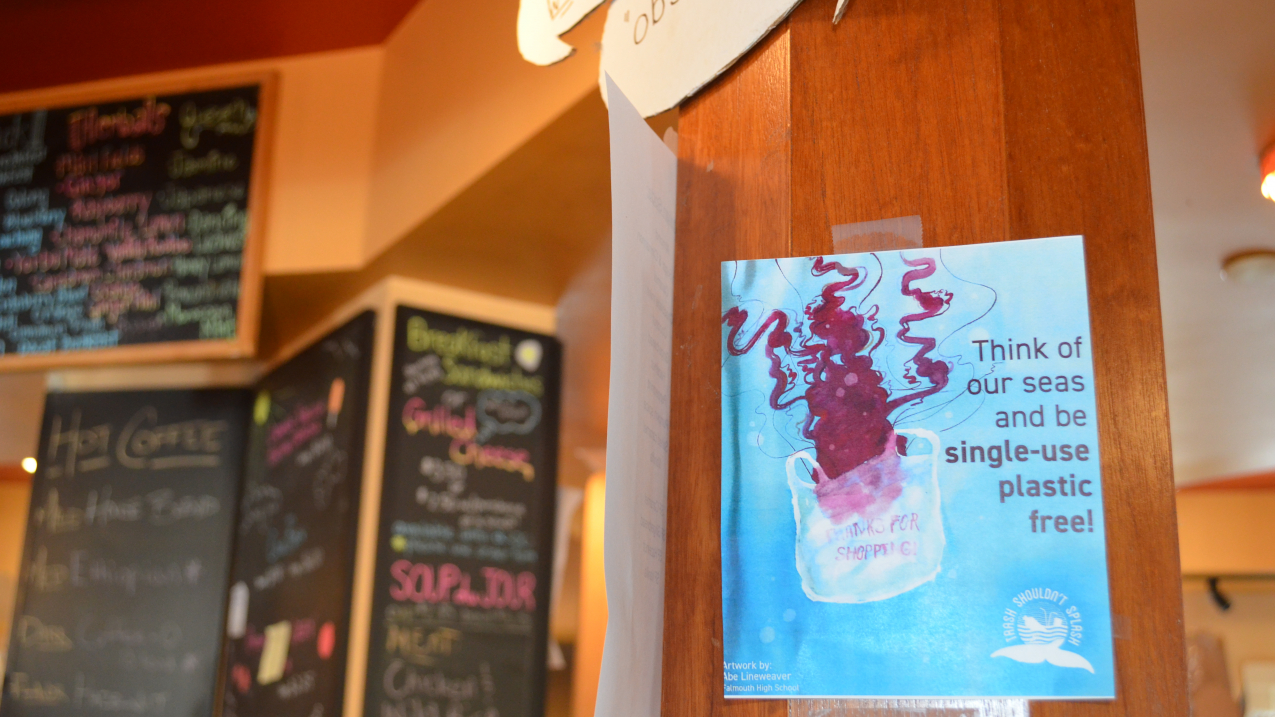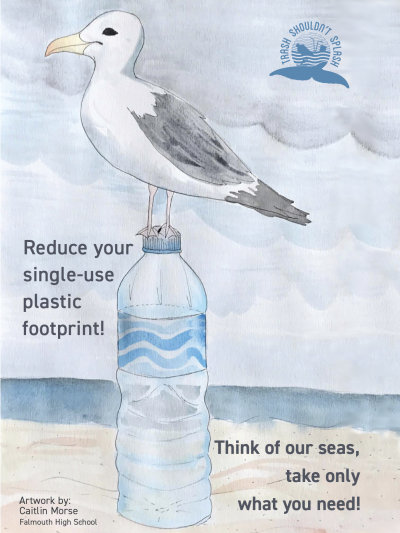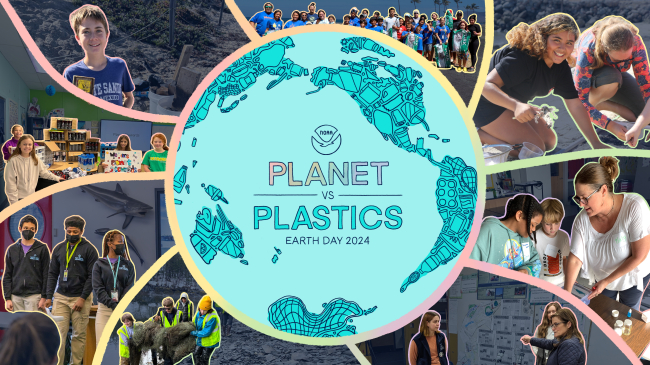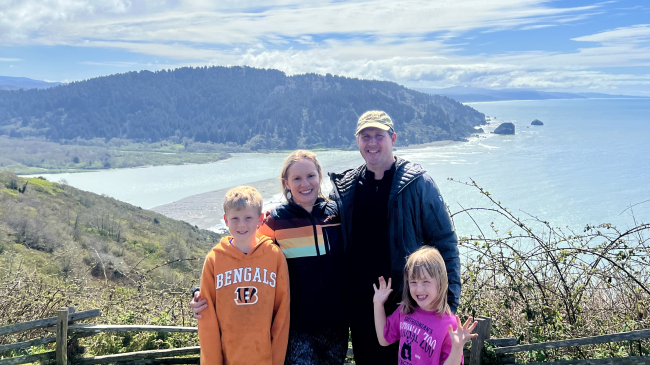In 2015, a group of middle school students from Falmouth, Massachusetts, noticed a problem in their local waterways: plastic was everywhere. These five friends saw people in their community using single-use plastics without a second thought. Could they change the norm?

The Trash Shouldn’t Splash Toolkit provides signage that can be used inside restaurants to encourage visitors to use alternatives to single-use plastic. The sign reads, "Think of our seas and be single-use plastic free!" (Image credit: Falmouth Water Stewards and Sea Education Association)
To address the growing problem of marine debris, they decided to start small, raising awareness with their neighbors and local businesses. Little did they know that they had kicked off what would become a major partnership funded by NOAA’s Marine Debris Program.
The students teamed up with Falmouth Water Stewards in 2015 to join the growing “skip the straw” movement and lead a local campaign to Skip the Straw offsite link in their area. Students prompted conversations with local restaurants to encourage them to eliminate straws, provide reusable or paper biodegradable ones, or institute a straw-only-upon-request policy.
Before long, their efforts attracted the attention of Sea Education Association offsite link (SEA), which brings undergraduate students to sea on sailing ships to conduct oceanographic research. Just as the middle school students noticed plastics polluting their community, these undergraduates saw the same problem while studying plastics in the open ocean.
“Their idea, based on their experiences seeing plastics floating in the ocean when doing research at sea, was to figure out, ‘is this something that bothers everyone as much as it bothers us?’” said Erin Bryant, Assistant Professor of Ocean and Coastal Policy with SEA.
SEA's years of scientific observations met Skip the Straw's passion, and with funding from the NOAA Marine Debris Program starting in 2016, the “Trash Shouldn't Splash offsite link” partnership was born.

Trash Shouldn’t Splash expanded on Skip the Straw’s work to educate the community about marine debris and encourage businesses and consumers to reduce their use of single-use plastics. The team also dove into the behavioral science about changing norms on a broader scale. To change people’s behavior and habits, they learned, they must first understand the driving factors underlying the behaviors as well as the obstacles to changing those behaviors.
To better understand people’s behaviors and habits related to single-use plastics, the Trash Shouldn’t Splash team gathered information through public surveys and conversations with students, business owners, and employees. They created a Trash Shouldn’t Splash toolkit offsite link that includes a suite of effective communication tools and scripts to guide conversations with local businesses.
By the project’s conclusion in 2018, ten restaurants in Woods Hole, Massachusetts, had posted signs supporting the Trash Shouldn't Splash campaign and committed to reducing single-use plastics. The campaign reached more than 1,000 K-12 students through classroom visits and art contests, and more than 135 SEA undergraduates have participated. The project continues to grow, with 44 toolkit downloads and 2,500 visits to the Trash Shouldn’t Splash website from around the world.
Thanks to the NOAA Marine Debris Program, SEA, and Falmouth Water Stewards, Trash Shouldn’t Splash showed students that they have a voice in the conversation, and that they are capable of changing the norms for ocean conservation in their communities and beyond.
This story was included in the Fiscal Year 2019 NOAA Education Accomplishments Report.



